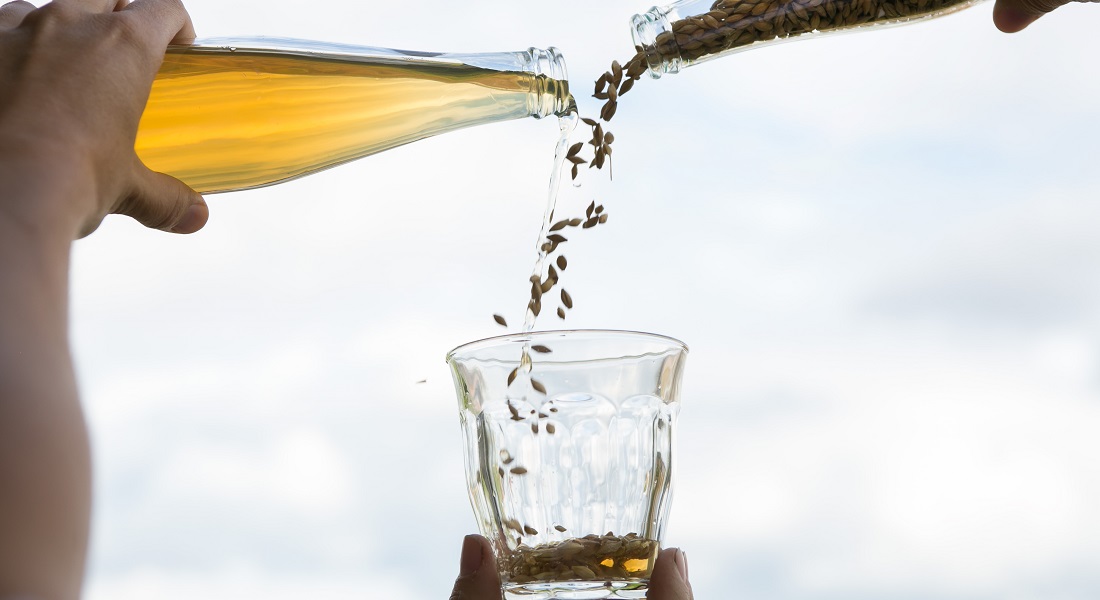Fermentation and starter cultures
A detailed understanding of microbiota in our food is of outmost importance for optimization of food quality, enhanced shelf live and food safety. The ecological and metabolic studies carried out at Department of Food Science facilitate the deliberate use of microbes for improving sensory characteristics, designing new products, improving health or preventing growth of pathogenic bacteria.

Within the area of fermentation and starter cultures research at the department we focus on biodiversity at the species and strain level, bio-protection, microbial interactions and optimization of starter cultures. We investigate foodborne bacteria, yeasts, moulds and phages, as well as their interactions with raw materials, food matrices and processing equipment. Detailed knowledge is required covering enzymatic activity, flavor formation and microbial competition in form of positive and negative interactions.
Our research is of significant importance for solving several global challenges. Fermentation can be seen as a cost-effective way of food processing resulting in foods with enhanced nutritional value, better taste and extended shelf life. Optimized fermentations prevent loss of raw materials and can make inedible raw materials edible. The Danish food, ingredient and biotechnological sectors produce excellent products all dependent on optimized performance of microbial cultures. These products are an important part of Denmark’s global export.
Exploring microbial differences and isolation of new species with new technological properties are quite important for new discovering within the biotechnological area. Bacteriophage – in short, phage - diversity and development are followed in cheese dairies using traditional as well as meta-virome approaches to understand the development of new phages causing acidification problems as well as flavour and appearance defects, and occasionally allows for growth of pathogens or spoilage organisms. Currently there is a significant lack of knowledge on sensing mechanisms taking place at the microbial level during food production. In our research we collaborate with microbial ecologists and researchers within the medical field to enhance our knowledge on microbial “small-talk”.
The diversity of food borne microorganisms is huge including both prokaryotes – bacteria - and eukaryotes - yeasts and moulds. Often significant strain variations are seen in the ability of the strains to grow in the food matrix as well as their metabolic trait and production of secondary metabolites. In order to use and trace food borne microorganisms their taxonomic position and metabolic activities need to be known. Understanding microbial fitness and survival in extreme and fluctuating conditions is a requirement to ensure the functionality of starter cultures used in the food industry.
With Africa being an up-coming continent for economic growth we have a keen interest in assisting in up-scaling the food sector. Recently we have established microbial culture collections in Ghana, Benin and Burkina Faso allowing our West African partners to preserve their microbial heritage for future use in the food sector. We also see African fermented foods as a new focus area for gastronomic development and as an upcoming research area for optimization of human health and well-being.
The understanding of the dynamics between bacterial host and phage in relation to food e.g. cheese fermentation and in relation to the intestinal microbiota is important. Our research focus on developing new molecular based techniques e.g. metavirome isolation from food and intestinal samples, characterization of metaviromes by next generation sequencing and by high-throughput qPCR, phage genome sequencing from single plaques using next generation sequencing. With these methods we generate massive data that help us understand the dynamics in the phage-host interaction and allows us to predict when fermentation failures are expected to appear, or which phages to use to change the intestinal microflora in a desired way.
Our research focuses on the physiology of yeasts and bacteria that are involved in fermentations of beer, wine and similar beverages (e.g. cider and kombucha). We analyse the performance of existing and novel strains in various worts and grape juices to establish which parameters have the greatest influence on the final product. We also investigate mixed cultures of several yeasts and bacteria, to assess the interactions between the cultures. In this respect, we utilize fluorescence microscopy and bioimaging to quantitate population heterogeneity, as well as using flow cytometry for high-throughput analyses.
A sustainable way of extending the shelf life of food products is to use “all-natural” preservation technologies in the form of bio-preservation. It has huge potential and bio-preservation can eventually form the way for production of less processed food and increase the stability of food products stored outside the cold chain. The effects of new bio-preservation technologies, based on microbial strains or enzymes including microbial production of natural preservatives are explored at the single cell level taking into consideration cell differentiation studied by up-front molecular biology techniques. Fundamental studies are transferred to real food matrices considering the interactions between microbial cells and the food matrix as well as the establishment of micro-colonies.
Contact
 Susanne Knøchel
Susanne Knøchel
Professor
Microbiology and Fermentation
 Lene Jespersen
Lene Jespersen
Professor
Microbiology and Fermentation
 Dennis Sandris Nielsen
Dennis Sandris Nielsen
Professor with special responsibilities
Microbiology and Fermentation
 Niels Arneborg
Niels Arneborg
Associate Professor
Microbiology and Fermentation
 Henrik Siegumfeldt
Henrik Siegumfeldt
Associate Professor
Microbiology and Fermentation
The research project: PROFERMENT
The research project PROFERMENT aims to build the scientific foundation for future development of a new category of proteinaceous, plant-based foods as clean-label alternatives for meat consumption using solid-state fermentation. The proteins in legumes and cereals will be nutritionally optimized and appealing structures and flavours created. Read more about PROFERMENT.
